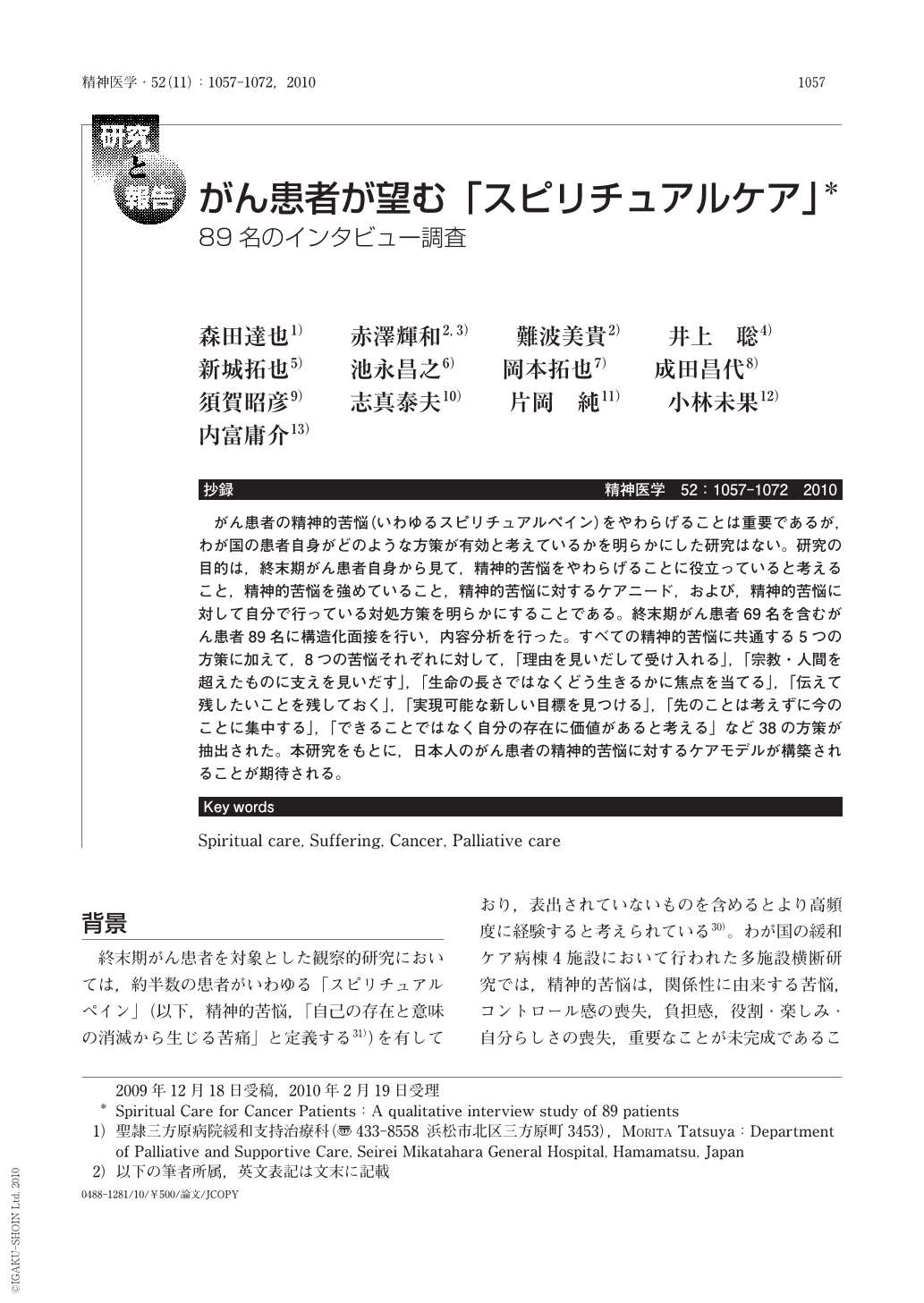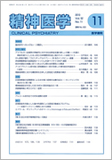Japanese
English
- 有料閲覧
- Abstract 文献概要
- 1ページ目 Look Inside
- 参考文献 Reference
- サイト内被引用 Cited by
抄録
がん患者の精神的苦悩(いわゆるスピリチュアルペイン)をやわらげることは重要であるが,わが国の患者自身がどのような方策が有効と考えているかを明らかにした研究はない。研究の目的は,終末期がん患者自身から見て,精神的苦悩をやわらげることに役立っていると考えること,精神的苦悩を強めていること,精神的苦悩に対するケアニード,および,精神的苦悩に対して自分で行っている対処方策を明らかにすることである。終末期がん患者69名を含むがん患者89名に構造化面接を行い,内容分析を行った。すべての精神的苦悩に共通する5つの方策に加えて,8つの苦悩それぞれに対して,「理由を見いだして受け入れる」,「宗教・人間を超えたものに支えを見いだす」,「生命の長さではなくどう生きるかに焦点を当てる」,「伝えて残したいことを残しておく」,「実現可能な新しい目標を見つける」,「先のことは考えずに今のことに集中する」,「できることではなく自分の存在に価値があると考える」など38の方策が抽出された。本研究をもとに,日本人のがん患者の精神的苦悩に対するケアモデルが構築されることが期待される。
Although relieving psycho-existential suffering in cancer patients is of great importance, no empirical study has been performed to understand the perspective of Japanese cancer patients. The aim of this study was to clarify what is and is not helpful in relieving psycho-existential suffering, identify any unmet needs, and determine what strategies are adopted when patients face psycho-existential suffering. A total of 89 cancer patients were interviewed, and these transcriptions were analyzed by content analysis. In addition to 5 general strategies, a total of 38 useful care strategies were conceptualized for psycho-existential suffering, including "finding the meaning and accepting it as it is" "exploring faith or something beyond the self" "focusing on how to live, and not the length of survival" "completing the legacy" "finding an achievable, new hope" "focusing on now and not the future" and "believing in the value of being, not doing". The findings of this study will contribute to the development of an empirically-based care model for palliative care of cancer patients with psycho-existential suffering.

Copyright © 2010, Igaku-Shoin Ltd. All rights reserved.


